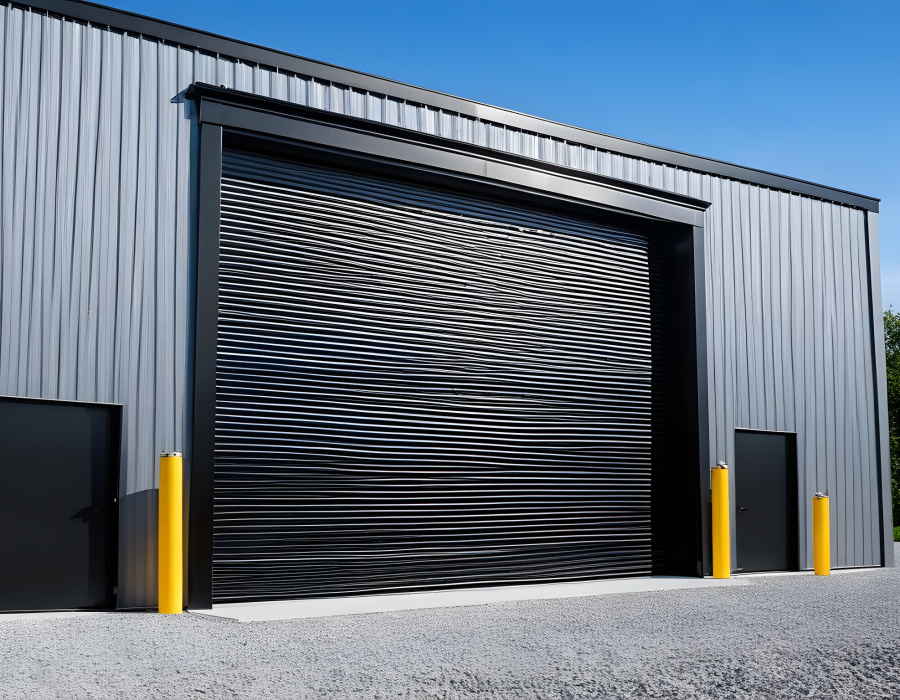In the world of industrial construction, the installation of metal garages plays a pivotal role in ensuring the safety, efficiency, and longevity of structures designed to house valuable equipment and machinery. While the mere thought of permits may conjure images of bureaucratic hurdles and red tape, their importance in the installation process cannot be overstated. In this exploration, we'll delve into the reasons why obtaining permits is not just a necessary evil but an essential step in the installation of industrial metal garages.
Ensuring Structural Integrity
Industrial metal garages are not just oversized tin sheds; they are sophisticated structures designed to withstand the rigors of industrial use. Permits serve as a critical safeguard against subpar construction practices, ensuring that the installation adheres to stringent structural standards. This is not merely a matter of compliance but a fundamental necessity to guarantee the safety of workers, protect the equipment housed within, and prevent potential disasters.
Consider, for instance, the structural requirements for wind and snow loads in different regions. Without the scrutiny provided by the permit process, there would be a risk of installing metal garages that are ill-equipped to handle the environmental challenges specific to the location. Permits thus act as a bulwark against structural inadequacies, promoting the longevity and resilience of the installed metal garages.
Environmental Impact and Zoning Compliance
The installation of industrial metal garages is not a one-size-fits-all endeavor. Local zoning regulations and environmental considerations vary widely, necessitating a tailored approach for each project. Permits are the gateway to navigating this complex landscape, requiring builders to adhere to zoning laws, environmental impact assessments, and other site-specific requirements.
By obtaining the requisite permits, builders ensure that their projects align with local regulations, preventing potential legal issues and costly disputes down the road. This compliance not only safeguards the interests of the builders but also contributes to the broader goal of sustainable construction practices. Permits thus play a crucial role in fostering environmentally responsible development within the industrial sector.
Community Engagement and Safety
Industrial metal garages are often situated within or in close proximity to residential areas. The permit process serves as a means of engaging with the local community, keeping residents informed about the upcoming construction and addressing any concerns they may have. This open communication fosters a sense of transparency and cooperation, mitigating potential conflicts between industrial development and residential communities.
Moreover, permits are not just about ticking boxes; they are a testament to the commitment of builders to prioritize safety. Safety considerations extend beyond the construction phase and encompass the ongoing use of the metal garage. By obtaining permits, builders signal their dedication to adhering to safety standards and protocols, fostering a culture of responsibility that benefits both workers and the surrounding community.
Quality Control and Professional Accountability
In the absence of a permit process, the industrial construction landscape would lack a standardized framework for quality control. Permits act as a mechanism through which regulatory bodies can assess and approve construction plans, ensuring that only qualified professionals are entrusted with the installation of industrial metal garages.
This scrutiny not only safeguards the structural integrity of the project but also acts as a quality control measure, preventing shoddy workmanship and substandard materials from compromising the final product. In essence, permits are a mark of professional accountability, holding builders to a standard that goes beyond the immediate interests of any single project and contributes to the overall reputation of the industrial construction industry.
Cost-Efficiency and Risk Mitigation
While obtaining permits may seem like an additional bureaucratic step, it can actually contribute to cost efficiency in the long run. The scrutiny provided during the permit process helps identify potential issues before they escalate, preventing costly mistakes and rework. It acts as a proactive measure, mitigating the risk of construction delays, legal disputes, and the need for expensive corrective actions.
Furthermore, insurance companies often require proof of proper permitting to provide coverage for construction projects. Failure to obtain permits can result in voided insurance policies, leaving builders exposed to significant financial risks in the event of accidents, damage, or other unforeseen circumstances. Permits, therefore, serve as a critical component in a comprehensive risk management strategy, protecting builders from potential financial liabilities.
Conclusion
In the realm of industrial metal garage installation, the importance of permits cannot be overstated. Far from being a bureaucratic hurdle, the permit process is an essential safeguard that ensures structural integrity, environmental compliance, community engagement, safety, and professional accountability. By embracing the permit process, builders not only navigate the regulatory landscape but also contribute to the overall sustainability and reputation of the industrial construction industry. In essence, permits are the cornerstone of responsible and resilient industrial development, laying the foundation for structures that stand the test of time.
Also Read: What Makes Dunkin Donuts a Popular Destination for Coffee Lovers






Comments